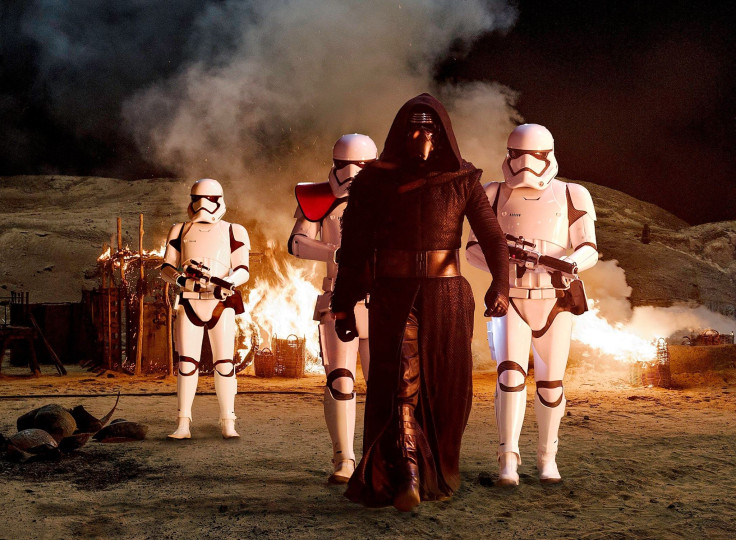Disney Stock Dives As ‘Star Wars’ Sets Records: Is Wall Street Overreacting To ESPN Blues?

LOS ANGELES — "Star Wars: The Force Awakens" is the highest-grossing domestic movie of all time, and hit that mark in just 20 days. But that hasn't meant much to Disney shareholders. The Walt Disney Co., which owns "Star Wars" production company Lucasfilm, is struggling as the crown jewel of its most important division, sports behemoth ESPN, is shedding subscribers as more people opt to cut the cable cord.
Concerns over that trend are why, despite having released one of the biggest movies ever, Disney isn't feeling the love from Wall Street. While "Star Wars" may be a global cultural phenomenon, its impact on Disney's bottom line is decidedly smaller.
For example, Disney brought in more than $52 billion in revenue during its last fiscal year. "The Force Awakens" has reeled in about $1.5 billion in worldwide box-office sales so far, and its total revenue, including movie tickets, merchandise, video games, could reach nearly $10 billion — but not all of that goes to Disney.
Disney's cable networks division, anchored by ESPN, earned $16.6 billion in revenue and $6.7 billion in profit last year. Even Disney's theme parks are more important than its studio entertainment division. Theme parks brought in more than $16 billion in revenue and $3 billion in profit, compared with about $7 billion and $2 billion, respectively, for studio entertainment. But based on its high margins — ESPN more than doubled the profit of Disney's theme parks on roughly the same amount of revenue — it's understandable how any threats to Disney's golden goose could call into question the stability of the entire enterprise.
Tim Nollen, an analyst at Macquarie, downgraded Disney's stock to "hold" in a Jan. 5 research note, writing that "a key catalyst — 'Star Wars' — has passed" and citing "increased cord-cutting fears at ESPN." Other analysts have echoed similar notes, and Disney's stock has continued to slide through the new year — thought not as much as many others caught in the current market bloodbath.
More Pixie Dust
But rumors of Disney's demise could be premature. There are "Star Wars" movies coming out for the next decade, and while none can expect to have the same impact as "The Force Awakens," they should be hugely profitable, both in box office and merchandise sales. Disney also owns Marvel Entertainment and Pixar, which should contribute to a pipeline of movies that ought to do well at the U.S. box office for years to come — and should also play well in China, a market that "Star Wars" could have some trouble conquering. And the theme park business can count on Shanghai Disneyland Park, set to open this year — and also something that can help cross-promote Disney movies in what's soon to be the world's biggest box office.

Even ESPN, which is shedding subscribers and has investors concerned that the fees it paid for live sports rights, such as the College Football Playoff, may not pencil out in the current media environment, is hardly out of luck. After all, the second college football playoff game — a noncompetitive matchup without tons of hype that kicked off after 8 p.m. EST on New Year's Eve — was watched by 18.5 million people. Given the rights fees paid — and major drop-off from last year's games — that was billed as a complete disaster, but ESPN's sports content does have value.
So while Disney is losing subscribers to cord-cutters who find the cost of cable a poor value proposition, there's still plenty of demand for ESPN's programming. In the end, fantasy players and other sports gamblers are going to have to watch games somewhere, and the massive casinos currently hosting CES are proof of the durability of that habit.
© Copyright IBTimes 2025. All rights reserved.





















